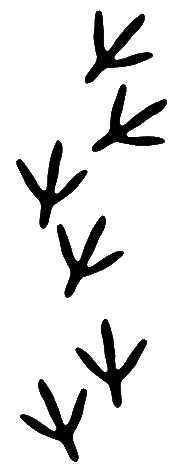I get asked the question a lot by those not in academia, “Why are you getting a PhD?” Initially, I know my answer. It is something along the lines of: wanting to study my subject deeper, learn how to better serve my clients, increase my opportunities in the counseling arena, and work toward a sense of completion of what I initially set out to learn.
However, after reading a few articles this past week, I ha ve found myself contemplating not just ‘why’ but ‘how’ I am getting my PhD. Don’t get me wrong, I know the steps and stages to the process in my program (course work, experiential internships, preliminary examination, dissertation); but rather I am examining how my experiences at VT are preparing me for my future career aspirations.
ve found myself contemplating not just ‘why’ but ‘how’ I am getting my PhD. Don’t get me wrong, I know the steps and stages to the process in my program (course work, experiential internships, preliminary examination, dissertation); but rather I am examining how my experiences at VT are preparing me for my future career aspirations.
I have always viewed education as something you do for yourself versus something you do to help you get a job. So after reading an article in Nature magazine titled “The PhD Factory” from 2011, I took pause. The article discusses how the world is now producing more PhDs than ever before, but there are fewer jobs for them all. With tenure track jobs at universities reducing, salaries not being competitive for the length of time in education and cost of education, and training not matching external available jobs, I wondered if this will have an impact on my education and potential career course. What I previously read, was once again reiterated about tenure track positions in academia being reduced through the In Academe, the Future Is Part-Time posted on The Chronicle of Higher Education. These videos and article echoed the statements that graduate school may not fully prepare graduates for the job markets, there are decreases in tenured positions at higher learning institutions, and the majority of the teaching workforce is made up of adjunct teachers. What does this mean to me as a future PhD, future counselor educator, and counselor?
It leaves me thinking that I do need to look to the current professors and adjuncts to redesign their teaching programs to include a wider workforce training and change the way learning looks to the students. The Carnegie Foundation for the Advancement of Teaching does great work in trying to meet their students in productive and creative ways to enhance their learning opportunities and decrease frustrations. I see much of that same outlook mirrored in the teaching I am receiving at VT. However, I also need to take a look at how I am learning and search for opportunities to creatively enhance what is being offered towards my specific career goals. The onus is not singular, but plural, I think. It is between me and my learning institution to make the most of my education.
VT is offering me some wonderful ways to reboot my career, aim me in various directions, and open so many doors that I never even knew existed. I am seizing the opportunity to figure out how this applies specifically to me and find ways to tailor it to best fit. The best thing of all is that I am at the correct place, with the correct people, to help me. The PhD process is not the most easy and may not be best suited for everyone. It stirs many questions, causes GREAT reflection of self/others, and does promote much growth.
Does this change my response to the initial question I get posed frequently? Why am I getting my PhD? All of the stuff I said before still applies. Although now I will add to that reply with: I want to widen my knowledge of teaching and learning, grow my understanding of how I learn, and figure out ways to incorporate all of that to help myself and others. Will this all translate to the future career aspirations? I do not know. As I stated earlier, I believe education is for the self. While I may reap the career rewards of the education, it really condenses down to the impact it all has on my mind; making every moment and penny very well invested.